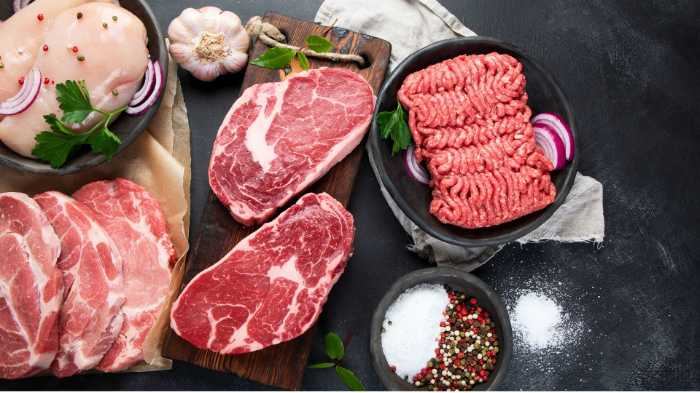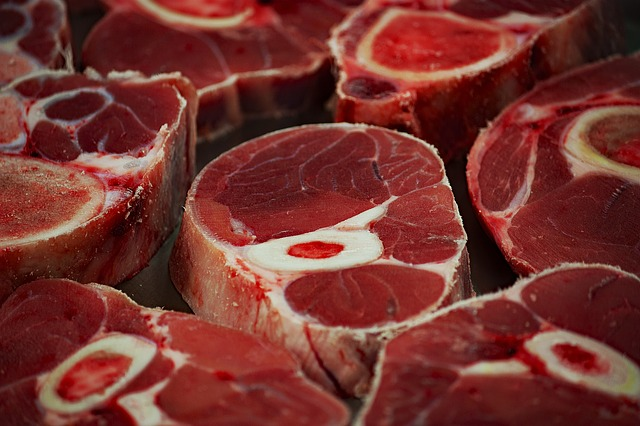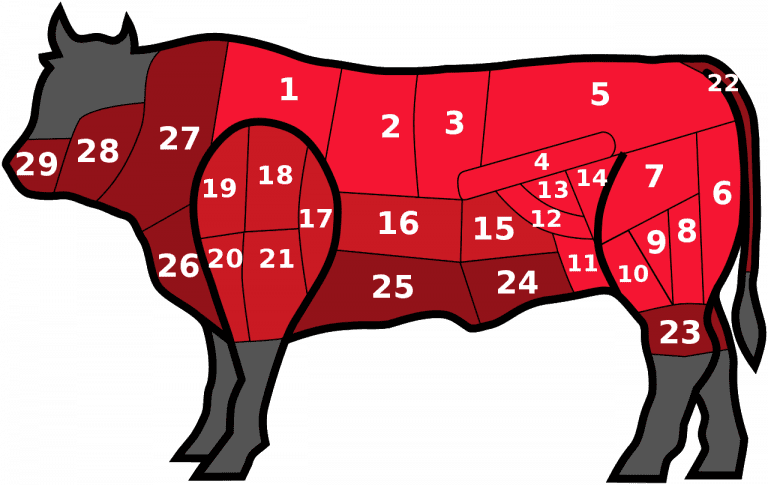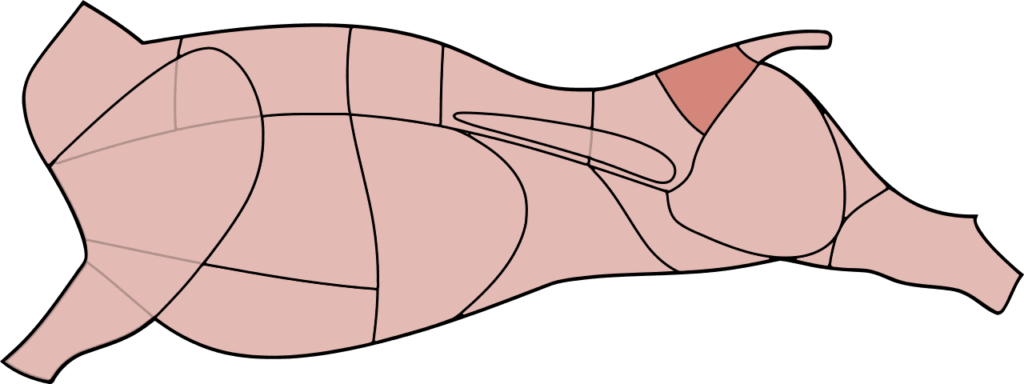
It’s no secret that the meat industry has a negative impact on the environment, but it is really difficult to say no when it has been a staple of our diets – forever! But livestock production is one of the leading causes of greenhouse gas emissions, and it also requires huge amounts of land and water. In this blog post, we will take a closer look at the environmental impact of meat consumption and discuss ways to reduce our impact on the planet. There are solutions, it is not an all-or-nothing proposition, we will need a little innovation to help get us there.
- What are the environmental impacts of meat consumption?
- 1. Greenhouse gas emission
- 2. Energy-intensive processes
- 3. Requires large amounts of land & water
- 4. Biodiversity loss
- 5. Land degradation
- 6. Human rights abuses
- 7. Land-grabbing
- 8. Eliminating wildlife
- How can you reduce your impact on the planet?
- 1. Reduce the consumption of meat
- 2. Buy from sustainable sources
- 3. Choose plant-based protein
- 4. Prefer locally-grown foods
- Why is it important to reduce our reliance on meat?
- What is the average beef production globally and how does it impact the environment?
- Conclusion
- FAQs
What are the environmental impacts of meat consumption?

Did you know that the average American consumes more than 270 pounds of meat per year? That’s more than double the global average! And it’s having a serious impact on the environment. Here’s a look at the environmental impacts of meat and how our consumption is harming the planet.
1. Greenhouse gas emission
One of the primary environmental impacts of meat consumption is greenhouse gases. According to research, the livestock industry is responsible for producing an estimated 14.5% of global greenhouse gas emissions, making it one of the leading contributors to climate change.
This high level of emissions can be primarily attributed to two things: farming practices and the digestive processes of livestock. On the farm, animals release methane as they digest their food. Methane emissions contribute significantly to greenhouse gases in our atmosphere.
2. Energy-intensive processes
Global meat consumption is a major source of environmental degradation. Large-scale animal farming often involves the use of energy-intensive processes like feedlot operations, which rely heavily on mechanization and fossil fuels to maintain. Furthermore, these energy-intensive practices often lead to high levels of carbon dioxide being released into the atmosphere, contributing significantly to global climate change.
Ultimately, choosing to consume less meat has serious repercussions for our planet, both in terms of reducing carbon emissions and fostering a more sustainable food system overall.
3. Requires large amounts of land & water
For many people, meat is an essential part of their diet. However, the environmental impact of this popular food choice is often overlooked. For instance, large amounts of land and water are required to support all livestock production. Not only is this unsustainable in the long term, but it also takes a serious toll on local resources such as rivers and lakes.
Furthermore, the production and processing of meat can have significant effects on air pollution and climate change. So if you’re concerned about the environment, reducing red meat consumption may be a good place to start! After all, every little bit counts when it comes to protecting our planet for future generations.
4. Biodiversity loss
Biodiversity loss is one of the most significant environmental impacts of meat consumption. The raising of animals for food often results in the loss of biodiversity as natural habitats are destroyed to make way for pastureland or feed crops. This destruction of habitat can lead to the extinction of plant and animal species and can disrupt the delicate balance between species in an ecosystem.
In addition, the use of antibiotics and other chemicals in animal husbandry can pollute waterways and soil, further damaging biodiversity. As our planet becomes increasingly populated and our demand for meat grows, it is essential that we find ways to produce food that has less impact on biodiversity. Otherwise, we may see many more plant and animal species disappear forever.
5. Land degradation
Land degradation is a major environmental impact on the livestock industry. It can occur through the over-grazing of animals, as well as soil depletion from the removal of vegetation. Overgrazing occurs when livestock are allowed to graze on an area of land for too long, without giving the vegetation time to recover. This can damage the soil and make it less productive.
Soil depletion occurs when the nutrients in the soil are depleted by the removal of vegetation. This can lead to desertification, which is the process by which an area of land becomes arid and unusable for vegetation. Both of these impacts can have serious consequences for the environment and human populations.
6. Human rights abuses
The global meat industry is rife with human rights abuses. From the abysmal conditions of factory farms to the horrific treatment of slaughterhouse workers, the meat industry relies on a cheap and captive workforce to produce its products. Laborers are often paid poverty wages, denied basic benefits and protections, and subject to dangerous and inhumane working conditions.
In addition, they are often treated with contempt and subjected to verbal and physical abuse. As a result of these conditions, workers in the meat industry are at heightened risk of injury, illness, and even death. In addition to being morally reprehensible, the treatment of workers in the meat industry has profound environmental implications. The global meat industry is a system that depends on exploitation and abuse. Until that changes, its impact on both people and the planet will be devastating.
7. Land-grabbing
The demand for meat has been on the rise in recent years, as more and more people are moving toward plant-based diets. This increased demand has put a strain on the world’s resources, as more and more land is being used to raise livestock. This land-grabbing has had a devastating impact on the environment, as large tracts of forest are being cleared to make way for pastureland.
This deforestation not only destroys habitats but also releases huge amounts of carbon dioxide into the atmosphere. In addition, the manure from livestock is a major source of pollution, as it can contain harmful bacteria and nutrients that can disrupt local ecosystems. As the demand for meat continues to increase, it is essential that we find sustainable ways to produce it. Otherwise, the environmental impacts of meat consumption will continue to rise.
8. Eliminating wildlife
The demand for meat is also having a devastating impact on wildlife. As more and more land is being used to raise livestock, there is less and less space for wild animals. This has led to a decline in the populations of many species, as they are forced into smaller and smaller areas. In addition, the hunting of wild animals for food is also on the rise. As the human population grows, so does the demand for meat, and this is having a serious impact on wildlife populations around the world.
The environmental impacts of meat are significant and far-reaching. From land degradation to human rights abuses, the global meat industry is damaging our planet in a number of ways. If we want to protect the environment, we need to find sustainable ways to produce and consume meat. Otherwise, the impact on both people and the planet will be devastating.
As the demand for meat continues to grow, it is important to be aware of the significant environmental impacts of its production.
How can you reduce your impact on the planet?

There are a number of things you can do to reduce your impact on the environment:
1. Reduce the consumption of meat
One effective way to reduce your impact on the planet is to reduce your consumption of meat. Meat production is extremely resource-intensive, requiring significant amounts of land and water as well as large quantities of fertilizers and pesticides. Furthermore, livestock contributes to GHG emissions by releasing large amounts of methane into the atmosphere.
By choosing to eat meat less often or reducing the amount you normally consume, you can significantly reduce your environmental footprint and lessen your impact on our planet’s resources. So next time you’re at the grocery store, consider skipping those frozen burgers in favor of a nutritious vegetarian meal – you’ll be doing yourself and the planet a favor!
2. Buy from sustainable sources
If you’re concerned about the environment, one of the best things you can do is to buy from sustainable sources. What does that mean? Essentially, it means that the products you’re buying come from a source that is environmentally friendly and won’t deplete the resources of our planet. For example, if you eat meat, make sure it comes from sources that have been certified as sustainable. Look for labels such as “USDA Organic” or “Animal Welfare Approved.”
These certifications guarantee that the animals were raised in humane conditions and that the farm followed environmental best practices. Of course, sustainable sourcing isn’t just limited to food. You can also find sustainable options for clothes, furniture, and just about anything else you can think of. So next time you’re making a purchase, consider the impact it will have on the planet and look for a sustainable option.
3. Choose plant-based protein
By choosing plant-based protein sources like lentils, beans, and tofu over more traditional animal products like chicken, beef, and pork, we can significantly reduce our impact on the planet and help preserve its health for future generations. Not only that but by switching to vegan or vegetarian meals we can enjoy a wider range of health benefits as well, including improved heart health and reduced incidence of certain cancers.
So if you’re looking to make a positive change for both the environment and your own wellbeing, consider making some mindful changes in your diet today.
4. Prefer locally-grown foods
One way to help reduce your impact on the planet is to choose locally-grown foods over industrially produced options. Local farms are typically associated with animal-friendly practices, like grass-fed beef, free-range chicken, raw dairy products, and organic produce. These methods require less energy and result in fewer GHG emissions.
Additionally, buying locally-grown foods helps to support the local economy and reduce your reliance on fossil fuels for transportation. When possible, visit your local farmers’ market or join a community-supported agriculture (CSA) program. Not only will you be eating healthier food, but you’ll also be doing your part to help the planet.
Why is it important to reduce our reliance on meat?
The meat industry has a negative impact on the environment, which is why it’s important for us to reduce our reliance on meat.
The way we produce food has a huge impact on the environment. One of the most important ways we can reduce our environmental impact is to eat fewer animal products. It takes a lot of water to produce animal-based foods.
For example, it takes only 1 calorie worth of water to produce 1 food calorie from plants but 10 calories worth of water for every food calorie coming from animals. By reducing our reliance on meat, we can make a real impact when it comes to reducing our impact on the planet. Not only will this help to conserve water, but it will also help to reduce GHG emissions and promote sustainable land use.

What is the average beef production globally and how does it impact the environment?
On average, beef production globally is estimated to be responsible for the GHG emissions of 1.28 billion tonnes of CO2 equivalent. Of this, 60% is due to cattle-raising practices and the remaining 40% is due to land-use changes, mostly deforestation resulting from the conversion of forests to pastureland.
Agriculture as a whole accounts for 10% of global GHG emissions, but beef and other cattle products represent a much higher share of this total. According to some estimates, if everyone in the world ate no beef at all, it would be the equivalent of taking 360 million cars off the road.
There has been a growing movement in recent years to reduce meat consumption, particularly red meat, for the sake of both human health and environmental sustainability. A number of celebrities and high-profile figures have spoken out in favor of abandoning meat consumption or going vegetarian or vegan, and campaigns like Meatless Mondays have gained traction as a way to encourage people to eat less meat. While reducing meat consumption is not a panacea for the environmental problems caused by agriculture, it is clear that it can play an important role in mitigating these issues.
Conclusion
When it comes to reducing our environmental impact, one of the most important things we can do is rethink our diet. By choosing plant-based proteins and locally-grown foods, we can reduce our reliance on meat and help preserve the planet’s health for future generations. So if you’re looking to make a difference, consider making some mindful changes in your diet today. Thanks for reading! I hope this was informative. Have a great day!
FAQs

What are the global greenhouse gas emissions of meat production?
The global GHG emissions of meat production are significant. Meat production accounts for 14.5% of global GHG emissions, and beef production specifically contributes to 41% of those emissions. Eating beef is responsible for more GHG emissions than any other food – even more than pork, poultry, and dairy combined. The majority of those emissions come from raising cattle, as cows release methane gas during digestion. Methane is a potent greenhouse gas that is estimated to be 28-36 times more potent than carbon dioxide. Reducing meat consumption is one of the most effective ways to reduce your individual contribution to climate change. Even small changes, like eating beef only a few times per week, can make a difference.
What are some of the best plant-based foods?
A plant-based diet is one that focuses on foods derived from plants, including vegetables, fruits, grains, legumes, and nuts. This type of diet is generally lower in saturated fat and cholesterol than a diet that includes animal-based products such as meat, eggs, and dairy. Plant-based diets are also associated with a number of other health benefits, including a reduced risk of heart disease, obesity, and type 2 diabetes. In addition to being good for your health, plant-based foods make for a sustainable diet as compared to a diet that relies heavily on animal agriculture. Moreover, a plant-based healthy diet requires far fewer resources to produce, making it a more sustainable option for both individuals and the planet.
How does food production impact climate change?
The production of food has a significant impact on climate change, largely due to the massive amounts of greenhouse gases that are released into the atmosphere as a result. Animal feed and meat and dairy products from large-scale livestock farming operations are major contributors to global emissions, due to the large number of fossil fuels used in raising, feeding, and transporting animals. Overall, the food production industry has an enormous effect on our planet’s climate, making it imperative that we work towards more sustainable practices moving forward.
How can beef production be more sustainable in the US?
e a few things that need to happen. First, people need to be more mindful of where their beef is coming from and how it was raised. If more people only ate beef that was raised sustainably, then the demand for it would increase, and farmers would be more likely to switch to sustainable practices. Second, we need to decrease our overall consumption of beef. According to the Environmental Protection Agency, beef production accounts for a significant amount of GHG emissions, so if we all reduce our beef consumption, we can have a significant impact on climate change. Finally, we need to support initiatives that promote sustainable beef production. The Global Roundtable for Sustainable Beef is one such initiative that is working to improve the sustainability of the beef industry worldwide. If we all work together to make these changes, we can make a big difference in the way beef is produced in the United States.
Do meat and dairy industries cause global warming?
Yes, dairy and meat production is responsible for a significant amount of GHG emissions. The majority of these emissions come from raising cattle, as cows release methane gas during digestion.

Dean Emerick is a curator on sustainability issues with ESG The Report, an online resource for SMEs and Investment professionals focusing on ESG principles. Their primary goal is to help middle-market companies automate Impact Reporting with ESG Software. Leveraging the power of AI, machine learning, and AWS to transition to a sustainable business model. Serving clients in the United States, Canada, UK, Europe, and the global community. If you want to get started, don’t forget to Get the Checklist! ✅
